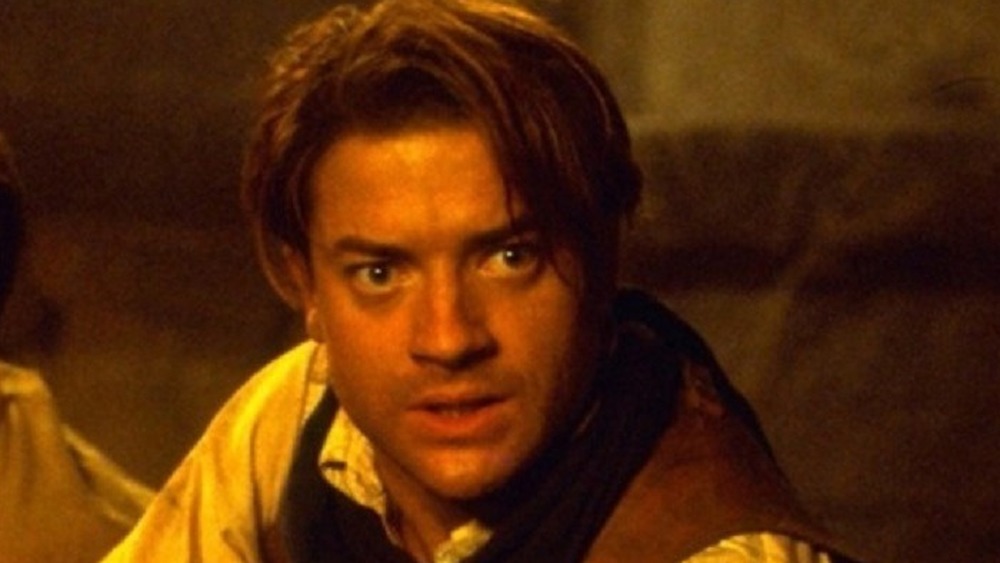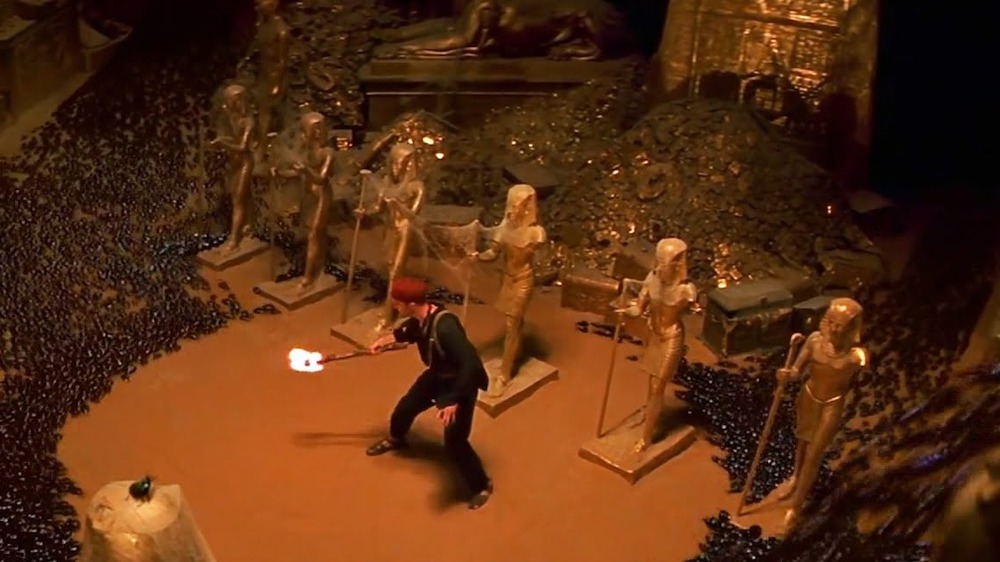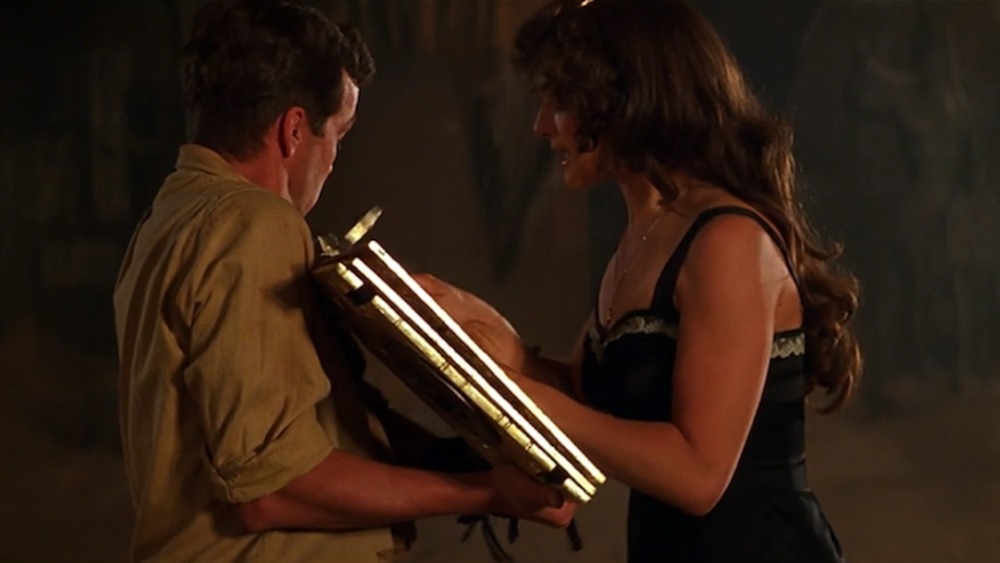The Ending Of The Mummy Explained
There's no doubt that when The Mummy came out in 1999, it shook up expectations for action movies going forward, even if we didn't fully appreciate it then. You can make the case that The Mummy changed action movies and basically nobody noticed. But one thing that didn't really seem that groundbreaking was the ending (unless you count the literal groundbreaking collapse of Hamunaptra).
As people who had seen movies before, even as kids we understood that heroes Evelyn (Rachel Weisz), Rick (Brendan Fraser), and Jonathan (John Hannah) had a very good chance of making it out alive, no matter how perilous the situation got. Meanwhile, Imhotep (Arnold Vosloo) was probably going to be defeated, one way or another. It didn't look good for treacherous Beni (Kevin J. O'Connor) either.
The plot of the ending follows this logic, while also cleverly laying down track for a potential sequel — which is how we got a certain underrated adventure film series on HBO Max, among many, many others. However, as the sands of time have continued to flow, it's become clear that there may be more to learn from the ending of The Mummy than first meets the eye. The characters' fates tell us about the movie's message, including the key factor required for surviving in the world of The Mummy and the "right" way to think about treasure.
Greed and selfishness get you killed in The Mummy
After Imhotep has died — with the sequel-setting-up line "Death is only the beginning" — Beni accidentally triggers the destruction of the city of Hamunaptra when he rests a heavy bag of treasure on a booby-trapped lever. He and Rick, Evelyn, and Jonathan run to escape as the doors and ceilings start closing from above.
We already know Beni is only interested in self-preservation and wealth. That greed literally triggered the event that leads to his death. And even as the city is falling above him, he continues to drag the sack of treasure, which slows him down until he's forced to abandon it to escape through a closing door. Beni catches up to the others but is seconds too late to follow them to safety through another closing doorway. If he'd left the treasure behind from the start, he may have made it in time. Beni is trapped in a room full of gold, a pretty heavy-handed visual cue that even the most valuable treasure isn't worth your life. And then he's eaten by scarab beetles.
However, Beni isn't the only treasure lover in The Mummy. The only reason Jonathan is interested in Hamunaptra is because it's rumored to be the place where the Pharaohs hid their treasure. But the difference between Jonathan and Beni is that Jonathan isn't entirely selfish. Beni is willing to abandon friends and lure them to their deaths to save himself, whereas Jonathan risks his life to save Evelyn. And in turn, when Jonathan is tempted by the treasure room on their way out of Hamunaptra, Rick and Evelyn pull him away to safety. Another direct comparison: when Jonathan encounters a scarab beetle, Rick saves his life by cutting it out. In the end, friends are the real treasure.
The Mummy has an Indiana Jones complex
It's not just Beni and Jonathan who consider sacrificing their lives to grab a precious object. When Jonathan drops the Book of Amun-Ra on the way out of the collapsing city, Evelyn runs back to rescue it, only to be dragged away by Jonathan and Rick (apparently the only person who fully grasps the extent of the danger).
The movie isn't totally opposed to treasure lust — but only if it's of a certain type. You could call this an Indiana Jones complex, since one of the rules Indiana Jones has to follow is that artifacts "belong in a museum," not at an auction. Evelyn's interest in the Book of Amun-Ra and Hamunaptra is academic, not avaricious. She sees these treasures as priceless historical objects whose value is not monetary but based on the information they can provide Egyptologists about the past.
This distinguishes her from the other parties looking for the city, especially the three American treasure hunters. Even when Dr. Allen Chamberlain (Jonathan Hyde) warns them about the curse set to befall anyone who opens the chest, they brush off the expert's warning because they can't think of the artifact in front of them as anything other than a source of potential treasure. And they die horribly because of it.
Chamberlain isn't spared either. Unlike Evelyn, he has sacrificed his academic credentials by associating himself with treasure hunters — that's why he's present when they open the chest, and is cursed and killed too.
The lessons in the ending of The Mummy are twofold. If you're going to look for Ancient Egyptian treasure, make sure your motivations are purely academic. And bring some friends along who can pull you away when you're about to risk your life in the name of treasure.
There are lots of other adventure films to watch if the enjoyed The Mummy. Or, you can check out any of the many flicks that the cast members of The Mummy have starred in since the trilogy was filmed.


